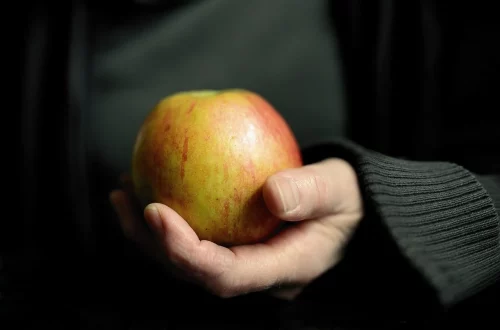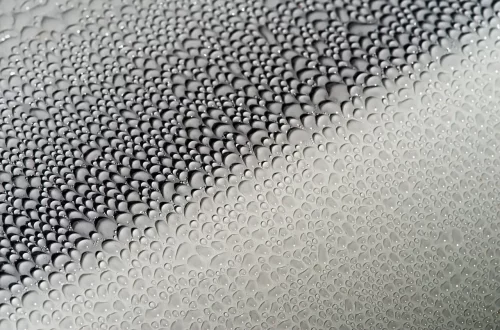
Diet Tips for Managing Your Cat’s Overactive Thyroid Condition
Managing a cat’s health can often feel overwhelming, particularly when dealing with a condition like hyperthyroidism. This common ailment affects many older cats, leading to a range of symptoms such as increased appetite, weight loss, and hyperactivity. The thyroid gland produces hormones that regulate metabolism, and when it becomes overactive, it can significantly disrupt a cat’s overall well-being.
Understanding how to manage this condition is crucial for ensuring your feline friend leads a healthy, comfortable life. While medication and veterinary care are essential components of treatment, diet also plays a pivotal role in managing hyperthyroidism. The right nutritional choices can help mitigate symptoms, support overall health, and improve your cat’s quality of life.
As a pet owner, you want the best for your furry companion. Therefore, it’s important to be informed about dietary strategies that can help manage an overactive thyroid condition. By making informed decisions about your cat’s diet, you can help regulate their metabolism, promote healthy weight maintenance, and ensure they receive the nutrients they need during this challenging time.
Understanding Hyperthyroidism in Cats
Hyperthyroidism in cats is primarily caused by an increase in thyroid hormone production, often due to benign tumors on the thyroid gland. This condition is predominantly seen in older cats and can lead to various health issues if left untreated. Symptoms typically include excessive thirst, increased urination, hyperactivity, and weight loss despite an increased appetite.
The thyroid hormones play a significant role in regulating metabolism, affecting nearly every organ in the body. When the levels of these hormones are elevated, it can lead to a hypermetabolic state, causing the cat to experience rapid weight loss and increased energy levels. However, this overactivity can also strain the heart and other organs, leading to serious health complications.
Diagnosis usually involves a veterinary examination, blood tests, and sometimes ultrasound to assess the thyroid glands. Once diagnosed, treatment options include medication, radioactive iodine therapy, or surgical removal of the affected thyroid tissue. While these treatments are crucial, dietary management is an essential adjunct to help control symptoms and support overall health.
Choosing the right diet can be instrumental in managing hyperthyroidism. Some commercially available cat foods are formulated specifically for cats with thyroid issues, often containing lower iodine levels to help reduce hormone production. It’s essential to work closely with your veterinarian to tailor a diet that meets your cat’s specific needs, taking into account their overall health, weight, and lifestyle.
Essential Nutritional Components for Cats with Thyroid Issues
When managing a cat with hyperthyroidism, focusing on essential nutritional components is critical. A balanced diet plays a vital role in maintaining your cat’s health and can help alleviate the symptoms associated with this condition.
Firstly, consider the protein content in your cat’s diet. Cats are obligate carnivores, meaning their diet must be rich in high-quality protein. However, in cases of hyperthyroidism, it might be beneficial to choose a diet that is lower in protein while still ensuring adequate intake for overall health. High-quality animal proteins can help maintain muscle mass, especially in a cat that may be losing weight.
Additionally, incorporating omega-3 fatty acids can offer significant health benefits. These essential fats can help reduce inflammation and promote heart health, which is particularly important for hyperthyroid cats that may be experiencing increased heart rates and other cardiovascular issues. Fish oil or flaxseed oil supplements can be added to their meals to boost omega-3 fatty acid levels.
Fiber is another crucial component to consider. A diet rich in fiber can help regulate digestion and prevent rapid spikes in blood sugar levels, which is beneficial for managing a hyperactive metabolism. High-fiber foods can also help your cat feel fuller, which may assist in weight management.
Moreover, hydration is paramount. Cats with hyperthyroidism may experience increased thirst and urination. Ensuring your cat has access to fresh water at all times is essential. You might also want to consider wet food as part of their diet since it contains higher moisture content, which can help keep your cat hydrated and support kidney function.
Lastly, it’s crucial to avoid feeding your cat any human food that might be toxic or harmful to their health. Certain foods, such as chocolate, onions, and garlic, can be particularly dangerous. Always consult with your veterinarian before introducing any new foods or treats into your cat’s diet.
Commercial Diets vs. Homemade Meals for Thyroid Management
When it comes to managing your cat’s thyroid condition, you may wonder whether to opt for commercial diets specifically formulated for hyperthyroidism or to prepare homemade meals. Both options have their pros and cons, and the best choice often depends on your cat’s specific needs and preferences.
Commercial diets designed for cats with hyperthyroidism are typically formulated to contain lower levels of iodine, which can help mitigate the effects of the condition. These specialized diets are often balanced and include all the necessary nutrients your cat needs. Additionally, they can be more convenient for pet owners, allowing for consistent meal portions and easy preparation.
However, not all commercial diets are created equal. It’s essential to choose high-quality brands that use premium ingredients. Consulting with your veterinarian can help you identify the best options for your cat’s health. It’s also important to monitor your cat’s response to these foods, as some cats may have sensitivities or preferences that need to be addressed.
On the other hand, homemade meals can provide more control over the ingredients your cat consumes. You can tailor their diet specifically to their needs, including their protein sources and nutrient content. However, creating a balanced homemade diet requires careful planning and knowledge of feline nutrition to ensure that all essential nutrients are included.
If you choose to prepare homemade meals, it’s advisable to consult with a veterinary nutritionist to develop a meal plan that meets your cat’s specific dietary requirements. This collaboration can help you avoid nutritional deficiencies and ensure your cat receives a well-rounded diet.
Ultimately, whether you choose commercial diets or homemade meals, the key is to ensure that your cat’s nutritional needs are met while managing their hyperthyroid condition effectively. Regular check-ups with your veterinarian will also help monitor your cat’s health and adjust their diet as needed.
Monitoring Weight and Adjusting Diet as Needed
Managing your cat’s weight is crucial when dealing with hyperthyroidism, as weight loss can be a significant concern. Regularly monitoring your cat’s weight will help you gauge the effectiveness of their diet and determine whether adjustments are necessary.
It’s important to note that while some weight loss may be expected due to the increased metabolism associated with hyperthyroidism, excessive weight loss can lead to other health complications. Use a scale designed for pets to track your cat’s weight accurately, and keep a record of their weight over time.
If you notice that your cat is losing too much weight or not gaining weight as expected, it may be time to reevaluate their diet. This could involve increasing the caloric intake, adjusting the type of food, or changing the feeding schedule. For instance, offering smaller, more frequent meals can sometimes help manage a cat’s appetite and energy levels better.
In addition to weight monitoring, pay attention to other signs of your cat’s health, including energy levels, coat condition, and overall behavior. Any changes may indicate that their diet needs to be adjusted.
Always discuss any concerns or changes with your veterinarian, who can provide guidance on the best dietary strategies for weight management. They may recommend specific foods or dietary changes to help your cat maintain a healthy weight while managing their thyroid condition.
Remember, managing hyperthyroidism in cats is a comprehensive task that involves careful dietary considerations, regular veterinary check-ups, and a keen awareness of your cat’s overall health and behavior.
**Disclaimer**: This article is for informational purposes only and does not constitute medical advice. Always consult with your veterinarian for any health-related issues concerning your cat.




